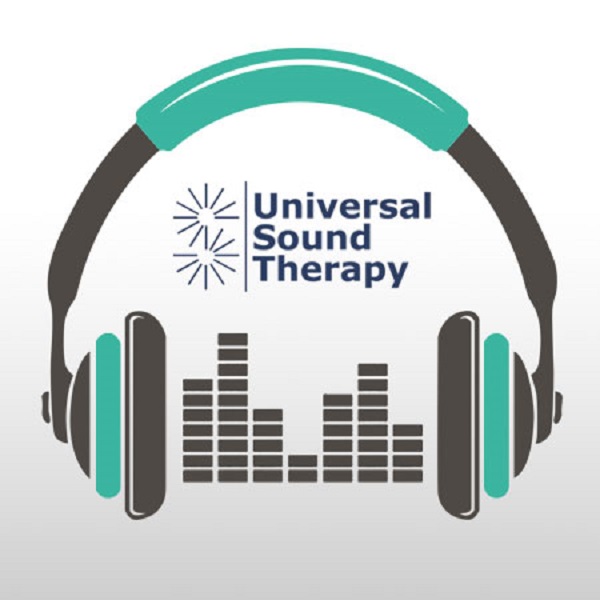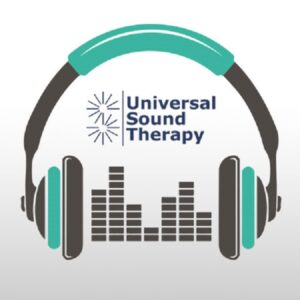Neuropathy
Are you or someone you love suffering from Neuropathy and associated symptoms? At Universal Sound Therapy we deal with all sorts of issues including Neuropathy with our sound therapies.
How?
Our therapy is based on frequencies, tuning your body to vibrate at the correct frequency is as important to your body healing itself or reducing symptoms you are facing. Our healing sessions provide your body with the frequencies that would be found in a normal, healthy body. Your system absorbs these frequencies and makes the needed changes to “tune itself” and start to heal. Our bodies want to be healthy and when we provide them with the proper tools they will do everything needed to do just that.
Universal Sound Therapy is in the business to help your body heal and we are so confident that it will work for you that we offer you a 90-day money back guarantee. And if our Neuropathy sound therapy CD doesn’t help, just return it for a full refund. Try to get that from your doctor or pharmacy.
Our Neuropathy sound therapy CD’s help by:
- Decrease or minimize occurrence of sharp, burning, throbbing, stabbing or electric-like pain
- Has the correct frequencies to help your body retune itself
- Aligns and opens your Chakra system
- Opens and cleans up your meridians
- Helps your body heal itself
Introduction to Neuropathy Sound Therapy
Do you have stabbing pain, burning or tingling in your feet and/or hands? Then you may have Peripheral Neuropathy.
Peripheral Neuropathy can be caused by infections, metabolic problems, traumatic injury, inherited issues and your exposure to toxins. The most common cause is Diabetes.
People with peripheral neuropathy generally describe the pain as stabbing, burning or tingling usually in their hands or feet and spreading up into their legs and arms. In many cases, symptoms improve, especially if caused by a treatable condition. Medications and some treatments can reduce the pain of peripheral neuropathy.
Here are some of the Signs and symptoms of peripheral neuropathy:
- Gradual onset of numbness, prickling or tingling in your feet or hands, which can spread upward into your legs and arms
- Sharp, jabbing, throbbing, freezing or burning pain
- Extreme sensitivity to touch
- Lack of coordination and falling
- Muscle weakness or paralysis if motor nerves are affected
If autonomic nerves are affected, signs and symptoms might include:
- Heat intolerance and altered sweating
- Bowel, bladder or digestive problems
- Changes in blood pressure, causing dizziness or lightheadedness
Fortunately there is help available. Your doctor may prescribe
- Pain relievers
- Anti-seizure medications
- Topical treatments
- Antidepressants
Unfortunately these treatments are only designed to treat the conditions of neuropathy. There is however, one product available that is designed to go a few steps beyond treatment of
symptoms. And that product is Universal Sound Therapies protocol for Neuropathy. You see, Sound Therapy is designed to give your body the proper tools to work with, so it can heal itself and return to it’s original healthy state.
Remember, Universal Sound Therapy stands behind every protocol with a 90 day money back guarantee. Order today.
Short Description of Neuropathy
Neuropathy is a condition where there is damage to the nerves located outside the brain and spinal cord (peripheral nerves). The disease causes weakness, pain and numbness on the hands and the feet. It can also lead to dysfunction in urination, circulation and digestion.
Symptoms of Neuropathy
- Tingling (“pins and needles”) or numbness, especially in the hands and feet. Sensations can spread to the arms and legs.
- Sharp, burning, throbbing, stabbing or electric-like pain.
- Changes in sensation. Severe pain, especially at night. Inability to feel pain, pressure, temperature or touch. Extreme sensitivity to touch.
- Falling, loss of coordination.
- Not being able to feel things in your feet and hands – feeling like you’re wearing socks or gloves when you’re not.
- Muscle weakness, difficulty walking or moving your arms or legs.
- Muscle twitching, cramps and/or spasms.
- Inability to move a part of the body (paralysis). Loss of muscle control, loss of muscle tone or dropping things out of your hand.
- Low blood pressure or abnormal heart rate, which causes dizziness when standing up, fainting or lightheadedness.
- Sweating too much or not enough in relation to the temperature or degree or exertion.
- Problems with bladder (urination), digestion (including bloating, nausea/vomiting) and bowels (including diarrhea, constipation).
- Sexual function problems.
- Weight loss.
About Neuropathy
Neuropathy refers to dysfunction or damage to one or more nerves that usually results to numbness, tingling, pain and muscle weakness in the affected regions. Neuropathy usually happens first in the hands and feet but other parts of the body may be affected as well. The condition often called also peripheral neuropathy tells us there is a problem within the peripheral nervous system of the body. This refers to a network of nerves outside the brain and spinal cord. The brain and spinal cord make up the entire central nervous system. Think of the two systems working in conjunction with one another. The CNS or central nervous system is the central station and control center, it is the hub from which all communications come and go. The peripheral nervous system can be compared to tracks that connect to the central station. These network of nerves allows information signals to travel to and from the CNS. Neuropathy happens when the nerve cells, known as neurons, become damaged. This results to disruption in the communication with the brain. The condition can affect only one nerve and hence mononeuropathy or a combination of nerves in a limited section or multifocal neuropathy. It may also be disseminated all throughout the body and is hence called polyneuropathy.
Etiology of Neuropathy
In the United States, diabetes is the leading cause of neuropathy but there are also many other causes as well. Some cases can be treated easily and sometimes cured. If it cannot, the goal of treatment is aimed at control and management of the symptoms in order to prevent further nerve damage.
The peripheral nervous system is comprised of three types of nerves with each one playing an important role in keeping our body functioning correctly.
- Sensory Nerves – These carry messages from our 5 senses namely: sight, smell, taste, hearing and touch via the spinal cord to your brain. For instance, a sensory nerve would send signals to the brain containing information about objects that you place in your hand and it can communicate what texture, pain and temperature feels like.
- Motor Nerves – These travel on the opposite direction of sensory nerves and they communicate information from your brain to the muscles. They tell muscles how and when to contract in order to produce movement. For instance, moving your hand away from something that is hot.
- Autonomic Nerves – These are the ones responsible for bodily functions that happen outside of your direct control like breathing, digestion, heart rate, sweating, blood pressure and sexual arousal. The autonomic nerves are on a constant basis monitoring and responding to external stresses and bodily needs.
If you have neuropathy, the most common sensation are numbness and tingling as well as weakness in that particular area of the body, other sensations include sharp, lightning-like pain, or a burning, throbbing and stabbing pain.
- Diabetes – This is the leading cause of neuropathy in the United States. Approximately, 60% to 70% of people with diabetes experience some form of neuropathy. It is also the most common cause of small fiber neuropathy, a condition that results in painful or burning sensations of the hands and feet.
- Trauma – Car accidents, falls, fractures from sports can result in having the condition. Nerve compression due to repetitive stress or narrowing of the space through which nerves run are also other causes.
- Autoimmune Disorders and Infections – Guillain-Barre’ Syndrome, SLE, rheumatoid arthritis, Sjogren’s syndrome and chronic inflammatory demyelinating neuropathy are autoimmune disorders that result in the condition. Moreover, infections like shingles, chickenpox, HIV, Lyme disease, herpes, syphilis, leprosy, West Nile virus, Epstein-Barr virus and hepatitis C can also result in neuropathy.
- Other Health Issues – The disease may also result from kidney, liver disorders, hypothyroidism, tumors (benign and malignant), that impinge on the nerves and invade their space, myeloma, lymphoma and monoclonal gammopathy.
- Medications and Poisons – There are some antibiotics, some anti-seizure meds and HIV meds that cause neuropathy. Chemotherapy and radiation can damage the peripheral nerves. Exposure to toxic substances like heavy metals (including lead and mercury) and industrial chemicals, like solvents may also result in nerve dysfunction.
- Vascular Disorders – The disease can also happen when blood flow to the arms and legs is decreased or slowed down because of inflammation, blood clots, or other blood vessel disorders. Lowered blood flow deprives the nerve cells of oxygen resulting to nerve damage, or cell death.
- Low Vitamin Levels and Alcoholism – Correct levels of vitamins E, B1, B6, B12 and niacin are essential for healthy correct nerve functioning. Chronic alcoholism robs the body of thiamine and other important nutrients needed for proper nerve function. It can also be directly toxic to the peripheral nerves.
Sales Page:_https://universalsoundtherapy.com/product/neuropathy/
Delivery time: 12 -48hrs after paid








Reviews
There are no reviews yet.